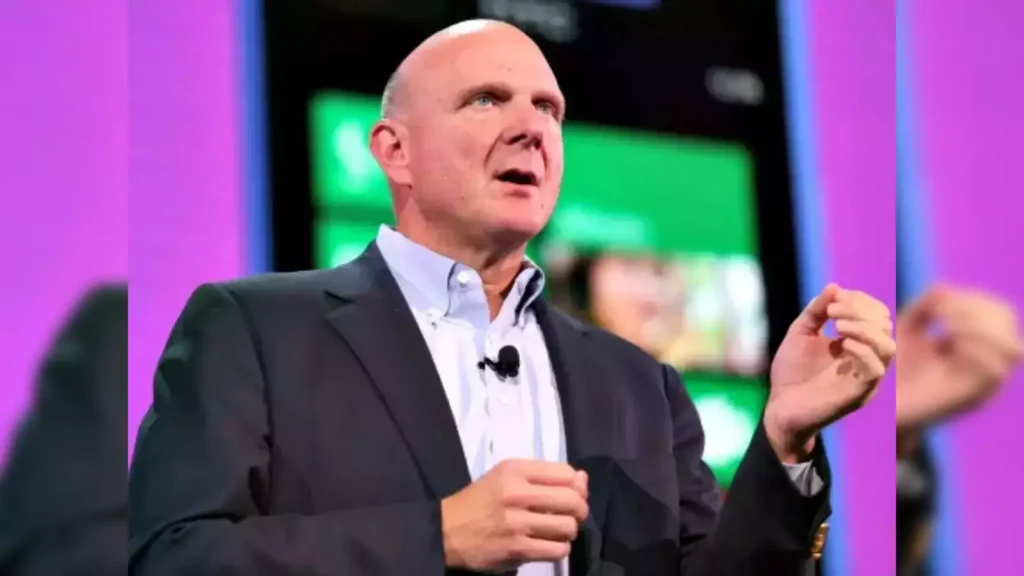Steve Ballmer’s recent rise to become the wealthiest former CEO of Microsoft Corp., surpassing co-founder Bill Gates, is a remarkable testament to the power of strategic investment and the burgeoning influence of artificial intelligence (AI) on the tech industry. According to the Bloomberg Billionaires Index, Ballmer’s net worth has surged to $157.2 billion, positioning him as the sixth richest person in the world. This milestone marks the first time Ballmer has eclipsed Gates, who has a net worth of $156.7 billion. The dramatic increase in Ballmer’s wealth is largely attributed to a 21% rise in Microsoft shares this year, driven by the company’s advancements in AI technologies.
Ballmer’s fortune, which is heavily tied to Microsoft’s stock performance, highlights the potential for significant wealth accumulation through strategic corporate leadership and long-term equity holdings. As of the last disclosure in 2014, Ballmer owned approximately 333.2 million shares, or about 4% of Microsoft. This substantial stake has positioned him to receive around $1 billion annually in dividends. His financial ascent underscores the benefits of maintaining a significant equity position in a successful, innovative company like Microsoft.
In contrast, Bill Gates has diversified his investments significantly. Gates’ wealth is managed through Cascade Investment, an entity established with proceeds from the sale of Microsoft stock and dividend payments. Cascade’s portfolio includes a $21 billion investment in Republic Services Inc., a waste management company, among other diverse holdings. Gates’ approach reflects a broader strategy to mitigate risks associated with concentrating wealth in a single company or sector. This diversified investment strategy has helped maintain his substantial net worth despite his extensive philanthropic efforts.
Gates, alongside his ex-wife Melinda French Gates and Warren Buffett, has been a major force in global philanthropy. They have allocated billions from their personal wealth to the Bill & Melinda Gates Foundation, one of the world’s largest charitable organizations with a fund of $75 billion. Gates’ commitment to philanthropy has gradually reduced his wealth over the years, highlighting a stark contrast between his and Ballmer’s approaches to wealth management and distribution.
Ballmer’s rise to the top of Microsoft’s wealth hierarchy also sheds light on the pathways to significant wealth creation within the corporate world. According to Forbes, many American millionaires have risen to prominence not by founding companies or inheriting fortunes, but by climbing the corporate ladder. Ballmer is one of the 26 individuals who built their wealth by excelling within the system, demonstrating that corporate leadership can be a powerful avenue for financial success.
This phenomenon contributes to the ongoing debate about wealth concentration and the potential need for global wealth taxes. Billionaires like Ballmer and Gates have benefited from the U.S.’s resistance to implementing such taxes, allowing them to amass and retain significant fortunes. The discussion around global wealth taxes focuses on addressing economic inequality and the role of taxation in redistributing wealth more equitably.
Ballmer’s financial success is closely tied to broader economic and technological trends, particularly the AI-driven stock boom. Microsoft’s leadership in AI has not only propelled the company’s stock but also significantly increased Ballmer’s net worth. This trend underscores the critical role of technological innovation in driving market dynamics and wealth creation in the tech industry.
Moreover, Ballmer’s achievements illustrate the impact of strategic investments and corporate governance on personal wealth. His substantial holdings in Microsoft and the company’s continued success highlight the benefits of maintaining a strong connection to a thriving business. This success story also emphasizes the importance of innovation and leadership in shaping the financial trajectories of tech industry executives.
As the dynamics of wealth creation continue to evolve, Ballmer’s journey offers valuable insights into the mechanisms of accumulating wealth through corporate leadership and strategic investment. His rise to surpass Gates in personal wealth not only reflects his financial acumen but also the broader economic forces at play in the global market. This story of financial success amidst technological advancement and strategic investment provides a window into the evolving landscape of wealth distribution and the role of corporate leaders in shaping economic outcomes.
In conclusion, Steve Ballmer’s ascent to become the wealthiest former CEO of Microsoft underscores the profound impact of strategic investments and corporate leadership on personal wealth. Ballmer’s substantial stake in Microsoft, combined with the company’s AI-driven stock boom, has propelled him to new financial heights. Meanwhile, Gates’ diversified investment strategy and commitment to philanthropy illustrate different approaches to wealth management. This dynamic highlights the broader discussions about wealth concentration, taxation, and economic inequality. As technological advancements continue to drive market trends, the financial trajectories of leaders like Ballmer will remain pivotal in shaping the economic landscape.
